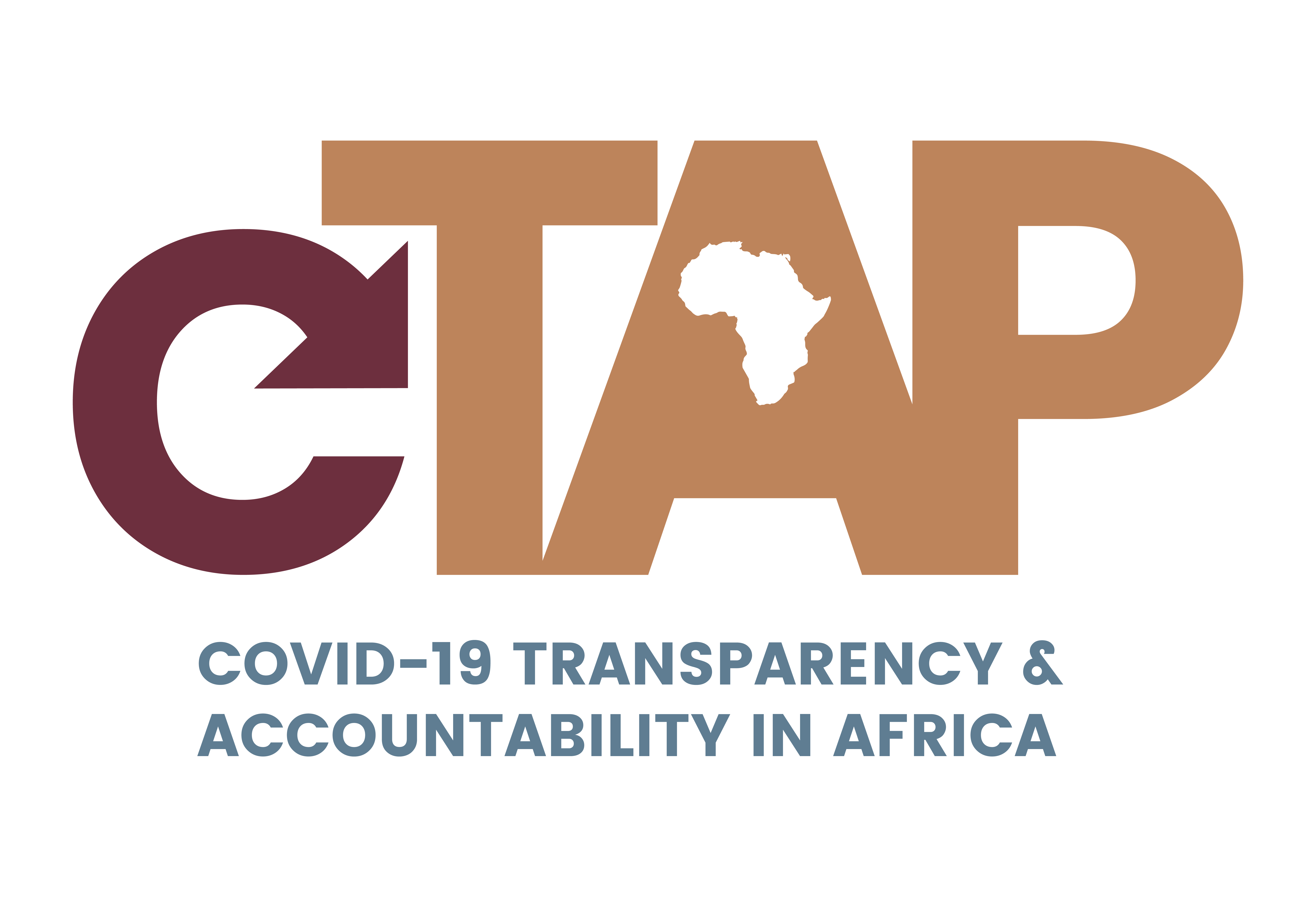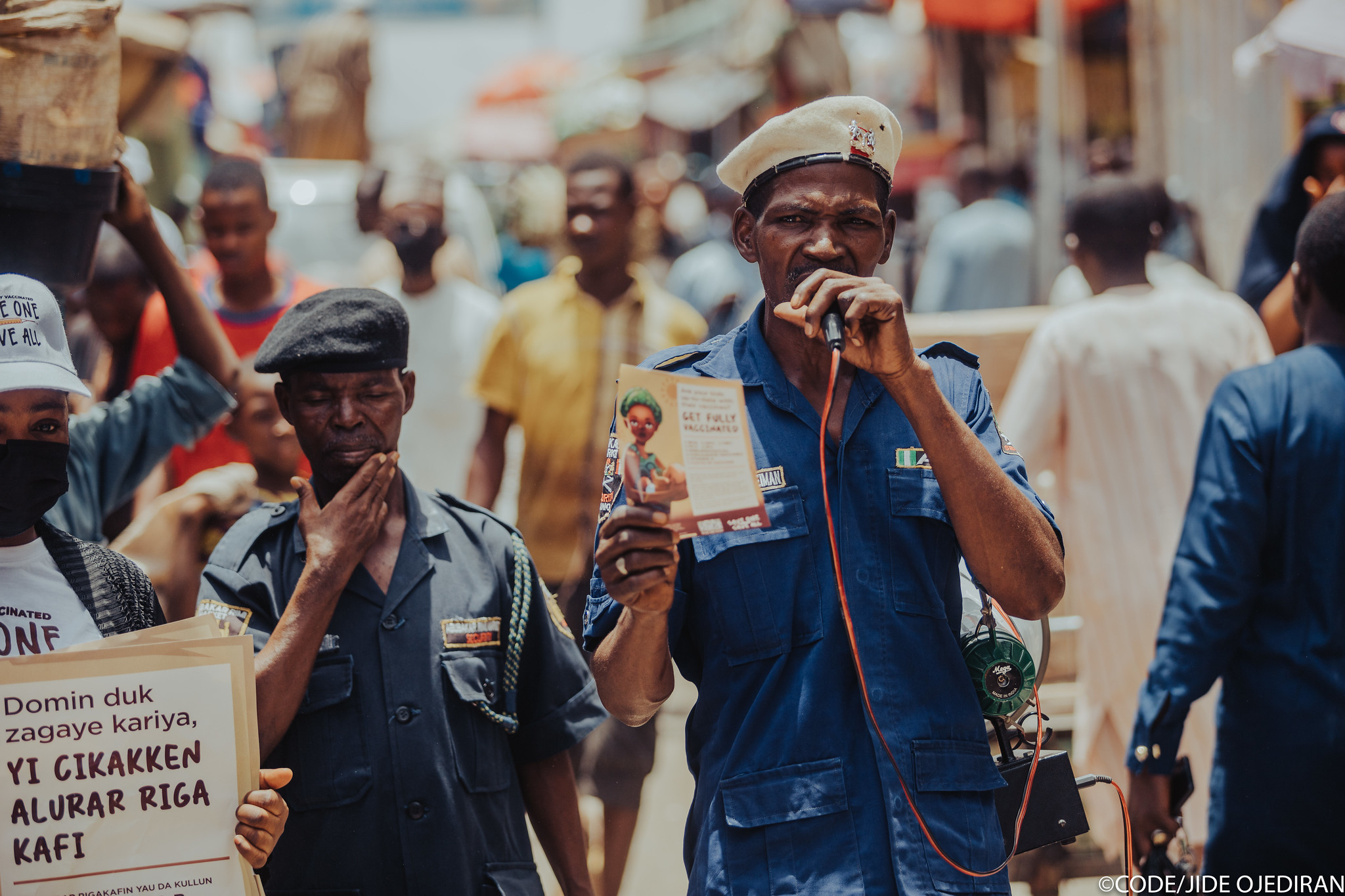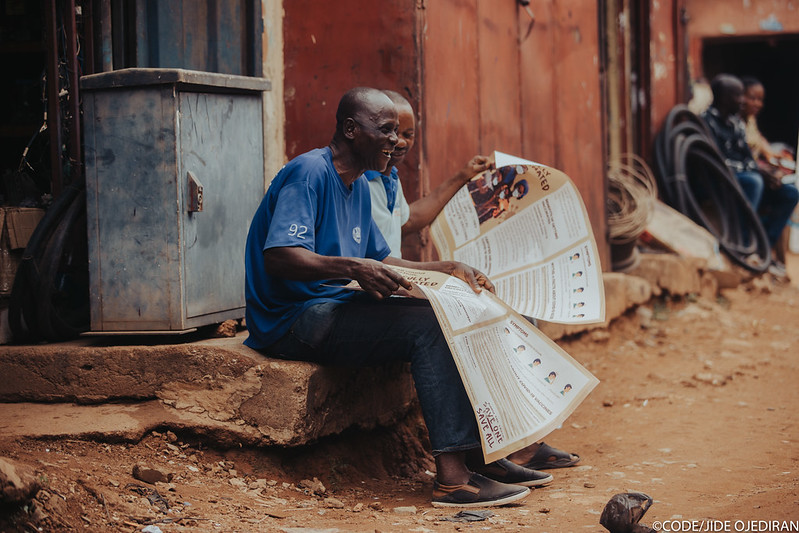This time, the final destination of this project phase, which hinged on agenda-setting for the healthcare sector in Nigeria, took our team to Osogbo, Osun State.
The first day of the campaign was a community town hall meeting with the citizens of Osogbo and the environs. “We’re trying to gather people’s expectations towards health service delivery. Whatever we discuss here is almost the same thing in all other southwest states’ experience and will be used to advocate for a better healthcare sector,” Iyanuoluwa Bolarinwa, BudgIT CTAP Project Lead, said, addressing the participants.
He asked the audience about the COVID-19 pandemic. Some responders believed the pandemic was gone, while others said it didn’t affect everyone. Some believed Nigeria didn’t get support from outside organizations.
Iyanu explained that not contacting the virus doesn’t mean one is unaffected, adding that “COVID brought about economic and health emergencies” and that “Just because government and media houses are no longer speaking about the COVID-19 virus doesn’t mean it is gone.”
When he asked about their use of primary health centers, the audience responded that apart from the primary health centers, they have private hospitals, which the majority patronized. He further asked about their experiences and reasons for using the diverse health institutions.
Mrs. Titilayo, one of the participants, said she uses the PHC because the government owns it, is near her residence, and is also cost-effective. She added that they get drugs from other pharmacies when unavailable at the PHCs and concluded by saying that for the times she had used the PHC, she was well attended to.
Kola Balogun said people get discouraged from subscribing to the scheme because of the initial cost, which many cannot afford. He also noted that healthcare workers are not serving the citizens and suggested accountability measures in the system.
Fatoki Akintunde said there is a brain drain among medical workers. He asked that the government provide incentives to retain medical workers, citing that most of his colleagues have migrated outside the country. He also narrated how an NGO project he was involved in (to provide eye care for children aged 0-14) failed because of the unavailability of one piece of equipment.
Adeitan Ibrahim said people don’t patronize the PHCs because they prefer to self-medicate, adding that there should be a way to monitor healthcare projects. He also suggested that for people to be confident in the safety of what the government provides, there is a need for grassroots research, sensitization, and tips against self-medication. He ended by asking if chemists have a license to practice and who guarantees such licenses are credible.
Iyanu said, “Advocacy has to be community-led to be sustained. It is a combined effort of CSOs, community champions, and healthcare workers. We can advise, suggest, and advocate as civil society organizations and have led the forefront of such advocacy with Tracka officers across 32 states in Nigeria and community champions in all states of the country.”
He explained that public health access should mirror the process that court cases follow, from the magistrate to the Supreme Court. Similarly, healthcare services should start at the PHC level for basic health needs and be escalated to the next in the hierarchy as necessary.
SUMMARY OF WHY CITIZENS DON’T FREQUENT PRIMARY HEALTHCARE CENTERS
As the goal of this phase of the CTAP project was to listen to the general issues of the citizens as a prerequisite for setting the agenda for healthcare planning, the attendees were given ample chance to share their views and experiences from which the following was gathered.
- PHCs are only effective in places where civilized people live
- Healthcare workers are not professional in their approach to patients
- Unnecessary expenses and extortion during antenatal visits and at primary healthcare centers
- Lack of drugs as the majority of doctors own private hospitals where they divert patients while nurses sell the medications to pharmaceutical brands
- PHCs have unqualified nurses who can’t even pass drip on patients
- Asking for money for immunization even when patients have their cards
- Misdiagnosing patients, such as asking pregnant women to use CS without valid reasons, thereby creating phobia in women against childbearing
- Selective attendance to patients by perceived political affiliation
- Lack of basic medications in PHCs
STORIES FROM THE FIELD
We gathered the following stories from the attendees as regards their personal experiences using health centers and other public health facilities within the state.
Oyewale Segun told us that his mum fell sick two years ago, and they took her to a PHC, where they met two student nurses. Since they could not get proper treatment at the PHC, they were forced to move to a private hospital, and as the case worsened, they moved her to LAUTECH Teaching Hospital, Osogbo. Upon getting to LAUTECH, it took five hours to get her a bed allocation, by which time she was already in a coma, and they lost her two weeks later. He sternly advised that people should use private hospitals to avoid similar experiences.
Yusuf, from Ede, also shared his experience using primary healthcare centers. Once, when his pregnant wife visited the PHC for antenatal care, she was asked to come with money for items he found ridiculous and unnecessary. After calculating the PHC cost, he concluded that a private hospital is far better.
Sanni Zainab told us that when her brother fell ill, he was diagnosed with typhoid at Tepatan Hospital, but they refused to give him the needed drugs. After that, they were relocated to Center Igboro Hospital, where they ran several tests and got a list of the medicines for his care. They put him on a drip but refused to give him the second drip at the set time while the caregivers slept in the camp of mosquitoes.
Abosede narrated how her pregnant sister was referred to another hospital where the doctor put her up for a cesarean session without any justifiable reason other than she was too weak to deliver herself. She questioned the rationale behind referring patients from one hospital to another and wished that it be canceled. Iyanu responded that referrals will not stop as it is necessary when a hospital cannot handle a patient’s case. Rather, what should be encouraged is helping the patient understand the diagnosis and reason for their referral.
SOLUTIONS TO COMMUNITY-IDENTIFIED PROBLEMS
Iyanu asked for solutions to the identified problem, and the following was submitted.
- Get the individual culture right among serving healthcare workers
- The government should have a strict policy on public servants, especially doctors having private hospitals
- Reduce the burden on available personnel by recruiting and training more healthcare workers
- The government should engage with communities to curb ignorance and enable reorientation on why they should use the PHCs
- The welfare of healthcare workers should be paramount so that no healthcare worker will refuse to treat patients because of unpaid salary
- Provide good water for citizens of Osogbo as they currently lack access to water and good water, in particular
- Build a good healthcare center in Shepena
- The Ministry of Health should put measures in place to conduct regular checks on hospitals
- PHCs should prioritize saving human lives above money by treating patients before payment like private hospitals do
- The government should provide modern machinery and improve hospital infrastructure
- Enable 24-hour availability of health workers in their duty post
The second and final day of the campaign was a High-level Roundtable Meeting for health leaders in Southwest Nigeria. The meeting, which was held in Osogbo, started with Iyanuoluwa Bolarinwa stating, “We’re trying to set an agenda for the new government on the state of the healthcare system and the needs of the people they govern. We understand our role as a CSO, bridging the gap between the people and the government, which is why this meeting is important.”
Dr. Bunmi Fakungase, CMD, OOUTH, Sagamu, recounted her experience 30 years ago when she was involved in a near-death accident with four other medical students. Speaking about the despicable practice among medical doctors, she said, “If the doctor handling my case that night had not opened up and transferred me to another hospital, I would have died. Apart from the government, the individuals and community have input in the future of healthcare in Nigeria. Over the years, we’ve lost trust and confidence in our health center. We must change that; nobody should die as much as it is avoidable. Break rules to make patients live. Don’t stay on borderlines while people die,” she concluded.
Addressing the question of increasing efficiency in the healthcare system, Dr. Francis Adegoke Akanbiemu, Permanent Secretary, Ondo State Primary Healthcare Development Agency, suggested that agencies should be given the autonomy to manage funds allocated to do their needs assessment. “We’ll miss it if the regulator is also in charge of interfacing with the execution of the identified needs when we can use tools designed by experts to monitor the progress of work and scrutinize the performance through a checklist for facility implementation,” he said.
During the dialogue, the participants noted that the healthcare system is in shambles. If no adequate measures and checks and balances are implemented, the future of healthcare in the Southwest cannot be guaranteed. They also engaged in a brainstorming session to draw out solutions that would become a communique to all state governments on the needs of the healthcare sector in the Southwest states.


